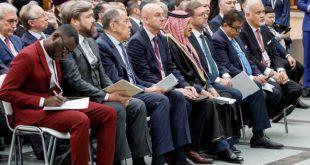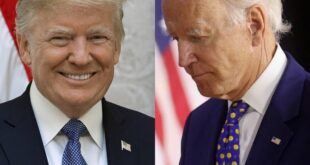
As the discussion around the «Economic Belt» idea rose, approaches of the Chinese authorities, governments of other interested countries towards the new integration policy are specified, it is becoming obvious that this project may contribute to giving a «new breath» to Belarusian economy which suffered particular difficulties within the recent years. Implementation of the Chinese initiative has a good chance to strengthen Belarusian position and role both in Eurasia as well as on the wider economic space from Lisbon to Vladivostok. This opinion is shared not only by authority representatives, but by many opponents to the Belarusian government.
How can be justified such a wide support by the Belarusian population of the Silk Road Economic Belt? It is worth distinguishing three main reasons:
1. The trust towards China is based on the bilateral relations practice within the whole period which started after the maintenance of diplomatic relations between Belarus and China (January 20, 1992)The history of cooperation between Minsk and Beijing convinced the Belarusian society and the country’s authorities in the fact that China respects the country’s sovereignty, internal and external political choice of Belarus. A dynamic Chinese leadership reflected in practice that it doesn’t impose to its partners any political conditions, is not seeking to create supranational political bodies, but step by step by means of economic cooperation, implementation of various projects it forms the belt of goodwill for its country instead of economic cordon.
It is worth noting that Belarus and China had no contradictions in approaches towards the solution of the most important global problems (formation of the multipolar world, condemnation of aggression and intervention in the internal affairs of other countries, combating history falsification and, primarily, events of the Second World War, etc.).
Since 1995 the Chinese capital has received the Belarusian president A. Lukashenko for 8 times. Belarus has continuously been visited by Chinese officials and their representatives who demonstrated equal nature of relations between both countries of various scale.
2. Despite the good dynamics in mutual trade, growth in the commodity turnover between the countries (the mutual trade turnover within 23 years of diplomatic relations increased 100 times), the Belarusian side is concerned by the negative trade balance with China. Thus, the trade turnover according to the results of 2014 amounted to 3.2 billion USD (taking into account services — about 4.2 billion USD). Simultaneously, the Belarusian export was estimated 713.4 million USD. Potassium salts (495.1 million USD) dominated in Belarusian export, mechanical engineering products cover only 10%. It complicates not simple economic situation in Belarus.
There are justified expectations that a new integration project will contribute to conversion of good political relations into the expansion of a mutually beneficial economic cooperation and decrease the trade disbalance.
Experts express hopes that a new stage of Belarus-China cooperation will give a new impetus to development of small and medium businesses in Belarus, which share and role in Belarus is quite poor. Thus, a significant part of credit resources allocated by China to Minsk in 2015 is planned to direct on support of the small and medium business. The Chinese party justifies such decision by the fact that the profitability of resources development in small and medium business is much higher than in a state owned sector. Belarusian experts agree here: this approach in the credit allocation process will contribute to reformation of Belarusian economy and increase its efficiency.
3. According to some experts, Belarusian status within the foreign strategy of Beijing has been significantly enhanced with the beginning of implementation of the Economic Belt. This opinion is based both on the amicable nature of Belarus-China relation (a comprehensive strategic partnership) but also on the acknowledgment of our country as the very important actor in the development of links between Eurasia and the European Union.
This fact was clearly evidenced during a 3-day visit of the lieder of China Xi Jinping to Belarus. A visit made by the leader of such a great power for a durable period to our country was assessed both as the sign of respect and demonstration of the interest of China towards Belarus. Oppositional journalists were marking the fact that Russian authorities never before visited Minsk for such a durable period. It is worth noting that Xi Jinping already visited Minsk five years ago being that time in a position of the Deputy Chairman of China, i.e. he had already been familiarized with Belarus and could imagine Belarusian realities.
Belarusian role in strategic plans of China were strengthened by political destabilization in Ukraine also occupying convenient geopolitical position between Eurasia and the EU. It is well-known that in summer 2011 China and Ukraine signed a declaration on strategic partnership. China planned to implement numerous wide-scale infrastructure projects in Ukraine, as well as projects in the sphere of energetics and agriculture. It is also well-known that these investments didn’t justify the estimations. Within this context Belarus obtained a particular significance for Beijing as the country playing stabilizing role in the Eastern Europe.
Belarusian positions were also strengthened by the country’s membership in the Eurasian Economic Union, which formation agreement was signed on May 29, 2014 in Astana (Kazakhstan) and entered into force from January 1, 2015.
Before the dramatic events in Ukraine there was no clear understanding of how the projects of Eurasian integration and the Silk Road Economic Belt would correlate with each other. Before the conflict in Ukraine and further reversal of Russia towards China after the imposition of Western sanctions against Moscow, these projects could have been considered as competing ones. There were talks that the Great Silk Belt is functioning in parallel with the Trans-Siberian Railway, which decreases the Russian transit capacity and will transfer Central Asian countries on the way to China. Amidst new external conditions the Russian leadership chose, according to our opinion, the most optimal among possible solutions: the Russians decided to fit into the Chinese project.
The fact that the lieder of China successively visited three countries of the Eurasian Union — Kazakhstan, Russia and Belarus — became a revealing moment for understanding that the main obstacles for harmonization of two regional Eurasian projects are eradicated.
Building of the «Great Stone» industrial park was selected as the concrete instrument of expansion in Belarus-China relations, and as the main focal point.
The Park is located only 25 km far from Minsk, the capital of the Republic of Belarus, in the unique natural complex and in close proximity to the international airport, railway lines, transnational highway Berlin-Moscow.
According to its founders, the «Great Stone» should become the real eco-city built with an emphasis on high-tech and competitive innovation productions with high export potential, with a special legal status for the provision of comfortable conditions for business conducting. The area of approximately 80 sq. km will unite production and living areas, offices and shopping malls, financial and research centers.
The idea of the China-Belarus Industrial Park creation was born in 2010. However, before the visit to Belarus of Deputy Vice President of the People’s Republic of China Xi Jinping in May 2015 dynamics of its construction remained very low.
During the meeting between leaders of both countries on the construction area it was once again noted that the main spheres for the «Great Stone» park residents will be the following: machine industry; medical equipment and materials; biotechnologies, pharmaceuticals, fine chemistry; electronics and electro technics; new materials; optics; other directions.
Such giant corporations as Huawei and ZTE which started construction of their industries already in 2015 were registered as the first residents of the park. ZTE launched production of the 4G mobile phones, Huawei is focusing on innovation scientific engineering and promotion of the software.
Currently there is a particular certainty that set tasks will be achieved: direct investments into the construction of the «Great Stone» park will reach 5.5 billion USD, within 20-30 years about 600 thousand working places will be created, growth of the Belarusian export will be amounted to 30 to 50 billion USD per year.
Whilst implementing the wide-scale projects, the parties might use the experience from the China-Singapore Industrial Park in Suzhou. This is the unique techno park in China which is established by China jointly with another state — Singapore. The «Great Stone» legal base is mostly created similar to Suzhou Park. Now perspectives on the park development and creation of the working places are prepared, etc.
Thereby, there is a serious point of growth for Belarus in the image of the China-Belarus industrial park. How Belarus will use this opportunity — it depends mostly on the Belarusian party itself.
One of the main challenges for implementation of the joint project is the combination of Eurasian integration and the project of the Silk Economic Belt. Some experts formulate the following constraints for the parameters of this park:1) There should appear no enterprises in the «Great Stone» concurring with the national industrial complex, but only high-tech ones;2) While planning the production, it is necessary to take into account Russian interests as it is still the main strategic partner to Minsk;3) Chinese activity on the Belarusian territory should be directed, primarily, at the markets of the European Union.
There is one more aspect of cooperation which is marked — an ecological one. It is proposed to pay considerable attention to technological regulations, carefully manage control over the production.It is obvious that there will appear many other serious problems in the industrial park development. But presence of the political will of both countries’ authorities will help in overcoming them successfully. The project has all chances to become a magnificent example of mutually beneficial cooperation between the countries of various scale.
- belarus
- China
- Industrial Park
 Kosmospolis Revista digital de Historia, Política y Relaciones Internacionales kosmos-polis
Kosmospolis Revista digital de Historia, Política y Relaciones Internacionales kosmos-polis






